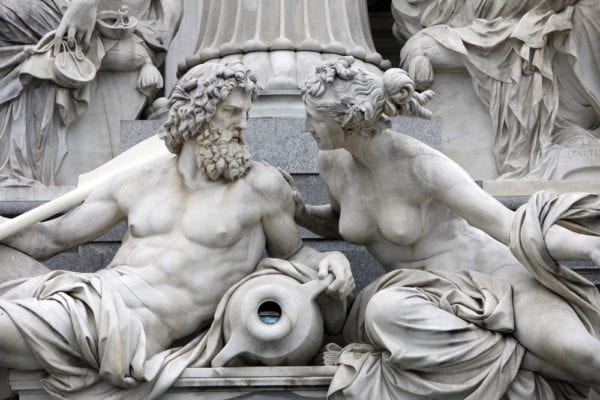Made in their image: Taking lessons from the Greek gods
Made in their image: Taking lessons from the Greek gods
Made in their image: Taking lessons from the Greek gods
-
Hannah
-
Hannah


My new novel, Aphrodite’s Tears, set on the Greek island of Helios, takes inspiration from the colourful, dramatic myths of the Ancient Greeks.
The hero of the book, Damian, is Greek, and he is very knowledgeable about the culture of his homeland. But more than that, he is a born storyteller, and he is a thinker who looks for meaning in the stories his people have been telling for generations. He is keen to share with the heroine Oriel, an Englishwoman, the ancient myths, as a means to help her understand the actions and feelings and desires of people.
Oriel, who is very well-read herself and has a sharp intellect, sees the myths as interesting from a cultural perspective, but having little relevance to the modern world. What relevance, after all, are gods that, in her own words, ‘were a vengeful and cruel lot’?
Take the myth of Persephone. Damian tells her the story as follows:
‘Persephone was a beautiful maiden desired by Hades, god of the underworld. When she refused to be his wife he kidnapped her to live with him in his dark world of the dead. Demeter, Persephone’s mother and the goddess of harvest, was so distressed, she killed every plant on earth. To avoid the devastation of the world, Zeus commanded Hades to allow Persephone to return home. However, before letting her go, Hades tricked her into eating four pomegranate seeds, which ensured she had to live in the underworld for four months every year.’
Oriel understands that this is how the ancient Greeks explained the change of the seasons, the eternal cycle of death and rebirth in nature, because while Demeter was mourning her daughter’s absence, she let the earth die and so came the winter. But what Oriel takes from this story is that the Greek gods and goddesses were ‘an unforgiving bunch’.
‘I’d hate to have been on the wrong side of their wrath,’ she tells Damian.
Damian takes a different meaning from the old stories, however. He does not see the gods as being so very different from mortals – mortals then and now, in fact.
‘These myths are about human nature and the passions of us mortals,’ he tells Oriel. ‘How can anyone deny seeing in them the reflection of their own shortcomings?… The gods shared the same weaknesses and violent passions as mankind. Anger, jealousy … desire. We are made in their image.’
It is true that many of the Greek myths are tales of woe – of violent deeds and betrayals and fury. But they are not, to Damian, meant to serve as warnings not to upset the vengeful gods so much as lessons that mortals should learn by seeing the mistakes of their gods.
‘We are made in their image.’ If that is so, then we are all full of passion, and we must learn how to handle it:
Ignore the passion, deny its existence – as Oriel tries to do when it comes to how she feels about Damian – and you risk missing out on all that life has to offer, you risk living a half-life.
At the other end of the spectrum, let passion consume you, as did Hades – as does a shady character on the island of Helios – and you may be driven to dastardly acts: entrapment, deception, vengeance.
But if you accept that you are like the gods, and you are capable of great passion but also of making great mistakes, then you must work hard, as Damian does, to embrace that passion whilst simultaneously trying to be a good person.
To do that, though, Oriel must overcome her own fear. ‘The mythology of your country,’ she tells Damian, ‘is teeming with tales of unleashed passions, drawing in their wake the most horrific tragedies.’
Damian’s response: ‘The passion we feel for each other can only lead to fulfilment, never tragedy.’
Ultimately, it is a matter of understanding how people are like the gods, but also, crucially, how they differ: that in their own story, mortals can choose for themselves a happy ending.